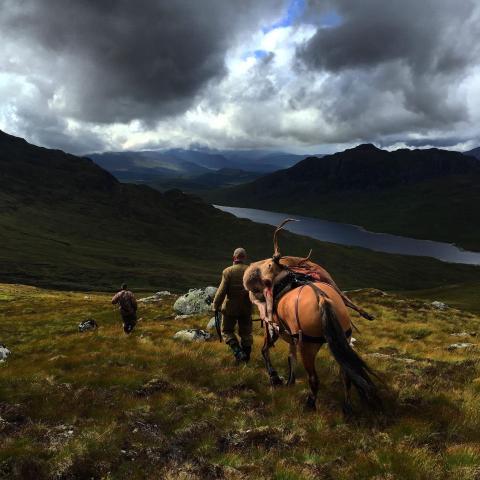Estate workers help to maintain and manage the environment for the benefit of people and wildlife. This can involve the management of a variety of different habitats including woodland, grassland, wetland and heathland, and also the maintenance of facilities for public access and recreation.
Their work varies depending on the habitat, and examples include:
Woodlands
- Felling trees using hand or chainsaws
- Coppicing by cutting trees on a regular basis after allowing them to re-grow
- Planting new trees to create new or replacing old woodland
- Removing unwanted plants and shrubs
- Creating habitats for birds, mammals, butterflies and other insects.
Grassland
- Removing vegetation by cutting using various equipment ranging from a strimmer to a tractor
- Managing vegetation by grazing using sheep, cattle or even rabbits to improve biodiversity
- Removing vegetation by burning
- Managing water levels.
Wetland
- Managing water levels
- Cutting vegetation including reed beds
- Creating areas for birds and other wildlife.
Heathland
- Removing scrub by grazing using sheep or cattle
- Burning the vegetation to help the heather to re-grow
- Cutting and spraying bracken and other unwanted vegetation
- Other work can involve the management and maintenance of boundaries (including dry stone walling, hedge laying and fencing), providing access points (signposting, waymarking, gates, bollards and stiles) and the building and maintaining of site ‘furniture' and other structures (access paths, benches, bird/bat boxes etc).
Working Conditions
Estate workers normally work around 40 hours a week. Weekend work and late evenings may be required.
The work will vary depending on the seasons and the habitat being maintained. For example most woodland management takes place in the Autumn/Winter whilst grassland management is undertaken in Spring/Summer.
The work is outdoors, in all weathers. It is demanding and can involve bending, lifting and carrying as well as using a variety of hand tools and other equipment such as chainsaws, strimmers and tractors.
It is likely that the job will involve working at a number of different sites, so a full driving licence would be useful. Some jobs, such as dry stone walling, may involve travel, and staying away from home from time to time.
Salary
Salaries vary with experience, qualifications and between companies, but here's a guide to what you can expect.
£14,000
£22,500
Getting started
Relevant qualifications
Experience is an advantage, but training is usually provided.
Employers are looking for people who:
- Have an interest in the natural environment, conservation, land management and public access
- Enjoy practical hands-on work
- Like working outdoors
- Enjoy problem solving.
What experienced workers can do
- Monitor and maintain health, safety and security in the workplace
- Maintain and understand records
- Construct, maintain and repair boundaries
- Communicate effectively with the public and others
- Prepare sites for habitat establishment
- Establish and protect vegetation
- Control pests and predators
- Read and understand maps and plans
- Use, maintain and repair hand-held equipment
- Able to promote responsible public use of outdoor sites.
Personal qualities you should have
- Be able to work in a team or on your own
- Be flexible.
Next steps
With experience or relevant qualifications it is possible to progress to supervisory or other conservation positions, such as Countryside Officer, Senior Estate Worker or a Property/Estate Manager.
The career structure will vary depending on the size of the organisation so you may have to change employers to progress.
There are some opportunities to become self-employed. This might include specialising in specific areas, for example dry stone walling or woodland maintenance, or expanding to include other areas of work, such as landscape gardening.
Those in self-employment will need to build a good reputation and develop their skills to get more work.
Useful links
British Association for Shooting and Conservation
Game & Wildlife Conservation Trust
Institute of Fisheries Management
